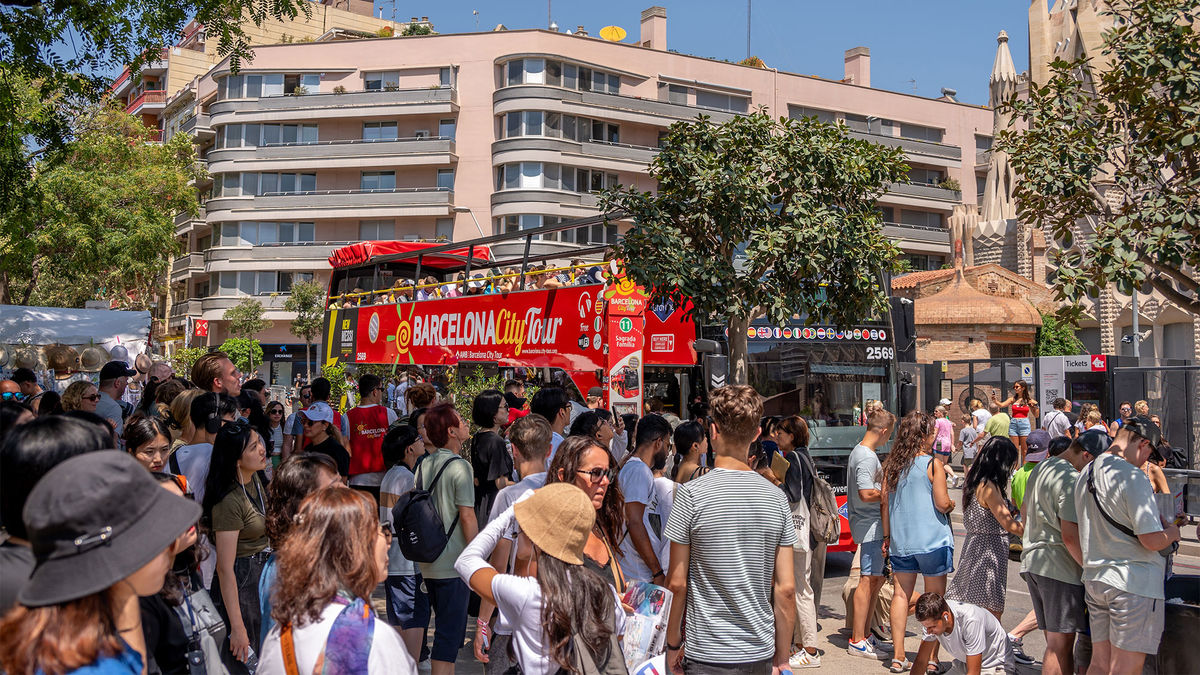Squirt guns do not have a place in the global conversation about overtourism, according to the tourism industry experts and leaders who condemned their use on tourists by residents in Barcelona during protests this month.
Though effective in drawing international media attention to the plight of residents in Barcelona, who local newspapers say have grown increasingly frustrated with rising housing costs, travel leaders say that residents crossed a line and that their actions ultimately sent the wrong message.
“I think the natural reaction is one of dismay; these protests, which were not spontaneous, chose to attack some individuals who they feel are representative of a class which they are objecting to,” said Tom Jenkins, CEO of the European Tour Operators Association.
Close to 3,000 Barcelona residents took to La Rambla, a popular street in the city center, on July 6 to protest mass tourism, carrying signs that read “Tourism kills the city” and chanting slogans like “Tourists go home.” According to reports, some residents, armed with water pistols, sprayed tourists as they dined outdoors on restaurant terraces. Others symbolically sealed off entrances to dining terraces and hotels with tape to block travelers.
It was just the latest in what has been a monthslong series of protests across Spain aimed at overtourism — or rather, as experts say, the less desirable impacts tourism is having on certain communities in the country and the frustrations that follow.
Other tourism protests in Spain have taken place in Mallorca, Malaga and the Canary Islands, and while those protests boasted larger attendance numbers in the tens of thousands, the protest in Barcelona appears to have been the most anti-tourism demonstration yet, staged in what is arguably Spain’s highest-profile tourist destination.
“It’s damaging for Barcelona; this was a little more confrontational,” said Simon Hudson, a professor of tourism at the University of South Carolina. “I remember having a conversation with my wife, saying, ‘Well, we wouldn’t want to go there.’ As a tourist, when you hear that news, nobody wants to go anywhere they’re not welcome.”
Spanish tourism authorities have condemned the water gun incident, with Spain’s tourism minister saying at a press conference following the protests that the actions are not in line with Spain’s culture of hospitality.
Tour operators said there has been virtually no impact to bookings for Barcelona in the wake of these protests but that they continue to monitor the situation.
Intrepid, which offers seven itineraries through Barcelona and two Urban Adventure walking tours, said its trips are operating normally, and services such as transportation and tourism activities have not been affected.
Similarly, Tauck has not seen any impact to its operations.
“It’s still a bit early to judge, but it appears that what happened in Barcelona may have been an isolated incident as we’re now approaching two weeks since it occurred, and no other incidents seem to have taken place since,” said Tauck COO Jeremy Palmer.
He added that bookings have been in line or surpassed weekly sales during the same time frame last year.
Locals need to be heard
Despite dismay over the protest methods, Spanish tourism officials last week stood by residents and their concerns about the negative impacts they’re facing as a result of tourism, from overcrowding to gentrification to rising costs.
In a statement, the Spanish Tourism Board in New York said “local communities are an essential part of tourism. We need to understand the critical civic perspective emerging in certain areas of our territory. It is important to listen to social sentiment because without citizens, there are no destinations.”
The Barcelona Tourism Board, in a statement, said that the city has been “managing tourism with advanced initiatives.”
Last year the city banned cruise ships from docking near the city center, requiring ships to dock at the Moll Adossat pier south of the city center instead. In 2022, it introduced restrictions for tour guides and groups that addressed noise concerns and overcrowding.
Late last month, the city announced plans to ban all short-term apartment rentals by the end of 2028. The measure, according to a Reuters report, would strip more than 10,000 apartments of their short-term rental licenses.
“Barcelona is a city with tourism, not just a tourist city,” the Barcelona Tourism Board stated.
And industry experts agreed that residents, and not just those in Barcelona, have legitimate concerns about tourism and how it’s impacting their daily lives in the short and long term.
But experts also pointed out that a pitfall in discussing “overtourism” is how the term is often used as a blanket statement to refer to specific problems that may have a direct or indirect connection to tourism.
And the harm in that, Hudson and Jenkins said, is misdiagnosing a problem and not being able to treat the true issues directly and effectively.
For example, Hudson said, “Barcelona tourists have become the target for people’s grievances with rising housing costs. Yes, Airbnb is a contributor, but it’s not the only one.”











